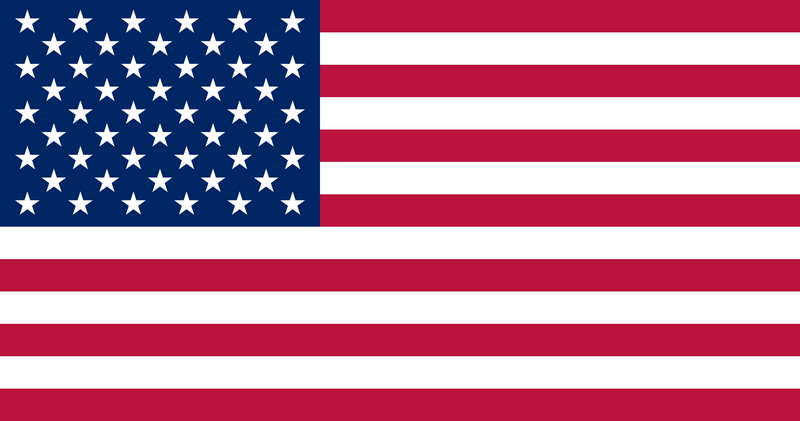What is the true cost of bottled water?
It feels like the cost of everything is rising these days…and that’s because it is.
Right now, inflation is causing the prices of everyday items to increase, and there’s only so much we can do to mitigate those costs. One commodity, however - bottled water - has been extraordinarily costly ever since it gained in popularity in the U.S. back in the 1970s. The average cost of bottled water is higher than gas in some states.
Why do we pay these exorbitant prices for a product that we can get for free? Is bottled water really better than tap water? And can filtered water offer a more budget- and environmentally-friendly alternative to bottles?
Average Price of Bottled Water
In 2013, Business Insider reported that consumers pay 300 times more for bottled water than tap water. In that year, the average cost of bottled water was $1.22 per gallon.
But most of us pay even more than that, since most bottled water purchases come in 16.9-ounce single-serving bottles.
In February 2022, Statista reported, “The average price for one unit of bottled water (out of home) in the United States increased from 4.69 U.S. dollars in 2020 to 4.90 dollars in 2021.”
If you’re using single-use bottles for all of your hydration, the costs add up: the suggested daily water intake is half of a person’s body weight (in pounds) in ounces. So the average person at 180 pounds would need to drink 90 fluid ounces, or over 5 bottles of water per day (over $24.50). While buying in bulk can help mitigate those costs, bottled water is consistently the more expensive hydration option when compared with tap water and filtration systems.

Environmental Impact of Bottled Water
We know prepackaged water comes at a pretty high price. But what is the environmental impact of bottled water? Drinking bottled water has an environmental cost too, as it leads to pollution and increased use of fossil fuels.
Pollution
According to NPR, “In 2019, more than 130 million metric tons of single-use plastics were thrown away.” More than 40% of plastics manufactured each year are single-use.
About 35 billion empty water bottles are discarded in the U.S. each year.
Fossil Fuels
The water bottle problem doesn’t just concern litter and pollution: To manufacture and ship bottled water (including single-use bottles and water cooler jugs), we need to burn fossil fuels.
In order to keep up with its citizens demands for bottled water, the United States has to burn the equivalent of 17 million barrels of oil.
Benefits of Bottled Water
Aside from its cost and environmental impact, are there any other downsides to bottled water? And why did we start drinking bottled water in the first place? Let’s look at some of the pros and cons of bottled water.
Filtered
Bottled water undergoes a filtering process, removing a significant amount of unwanted particles from the water. The most common type of filtering process in the bottled water industry is reverse osmosis (RO).
Dasani, Nestle, and Aquafina all use RO filtration to remove impurities. But RO alone doesn’t remove all unwanted particles from water, and it can also remove some of the “good” stuff too — including minerals that make water taste better.
Convenience
Convenience is probably one of the main reasons why consumers might choose bottled water over tap water. It’s very easy to pop a plastic bottle of water into your gym bag, or keep a few bottles in your car.
Buying bottled water is also easier than installing a water filtration system in your home, even though filtering your tap water will always be more cost-effective. Many consumers may be unaware that there are water filtration options that don't require installation (such as Wisewell).
Easy Hydration
Convenience leads to increased hydration. A 2020 NY Post story reported that most Americans don’t drink enough water.
“When asked why they don’t drink enough water, more than three in 10 of those polled by Evian admitted they don’t drink as much when they are ‘busy,’ while almost a quarter (23 percent) ‘don’t remember.’”
It’s easier to remember to drink water (especially when you’re on the go) when you can just grab a bottle from the fridge on your way out the door.
Quality Control
Bottled water is monitored for quality, and the EPA ensures products are free from certain contaminants, such as E. coli and salmonella.
When it comes to mineral water versus spring water, the FDA monitors spring water to ensure it’s sourced from a spring and mineral water to ensure it contains a certain level of trace minerals.
While this may seem reassuring, it’s important to remember that the EPA and FDA have often been years behind when it comes to regulating new chemicals. For example, the EPA still hasn’t changed its outdated policies regarding PFAS (or “forever chemicals”). Despite the fact that the EPA admits that the only acceptable amount of PFAS in water is 0, their guidelines still allow for a certain level of contamination.
Disadvantages of Bottled Water
Aside from the financial and environmental burdens of bottled water, are there any other disadvantages to bottled water?
Minerals Removed
Unless you’re buying bottles specifically labeled as mineral water, minerals have probably been removed from the final product during the filtration process.
If a company chooses to add minerals back into their water after the reverse osmosis process, they may charge more for these additives.
Single-Use Plastics
Single-use plastics not only add to pollution, but they contain chemicals themselves.
The idea that plastic bottles can leach dioxins when exposed to heat circulated after singer Cheryl Crow posted a comment on her website in 2001:
"Don't drink water from a bottle that has been sitting in your car. Heated plastic will bleed toxic substances that can be carcinogenic."
While this theory proved false and plastic water bottles don’t release dioxins, they DO leach other chemicals, such as polyethylene terephthalate.
Bottled Water Alternatives
So what’s a person in need of convenient hydration to do?
None of us wants to pollute the earth or spend more on bottled water than gas, so how can we find convenient, safe, great-tasting water without any single-use plastics?
Tap Water
Tap water can be a great alternative to bottled water. Yet, depending on where you live, your tap water may contain unwanted particles or bacteria.
New York City’s drinking water is consistently awarded “best tap water,” something both the city’s pizza and bagel industries list as their secret ingredient. However, even NYC tap water has contaminants that exceed the Environmental Working Group’s suggested levels.
Memphis, TN, has “the sweetest drinking water in the world,” thanks to its high standards for tap water filtration and the fact that it’s sourced from natural reservoirs that sit hundreds of feet below the ground. Once it is sourced, it’s aerated, filtered, and undergoes chlorination and fluoridation. But Memphis’ water quality has been shaken in recent years: dropping temperatures have damaged the city’s pipes and made the water vulnerable to contamination.
Other locations have it worse: residents of some cities have been exposed to dangerous levels of giardia, lead, and copper in tap water.
Filtered Water
Filtered water is an excellent substitution for bottled water. Not only does filtered water offer some of the same benefits as bottled water, but it’s usually better for the environment and for our overall health.
The three most common types of residential water filters include whole-house filtration, under-the-sink filtration, and stand-alone water filters.
Whole-House Filtration
Whole-house filtration systems filter the water of an entire building or unit. These filters not only filter the water you use for drinking and cooking, but they also filter shower and bathroom sink water, too.
While these systems make water filtration as easy as turning on the faucet, they can be costly and require extensive installation.
Under-the-Sink Filtration
Under-the-sink filtration systems filter the water of only one sink. Since kitchen sink water is used for cooking and drinking, many consumers choose to install systems in the kitchen.
Using such a system on a daily basis is just as easy as using a whole-house filtration system: just turn on the faucet for filtered water.
The downside to these filtration systems is that they still require installation (which can cost hundreds of dollars). If you need to install a filtration system under every sink, the costs can rise into the thousands.
Also, both under-the-sink and whole-house filtration systems aren’t ideal for renters.
Stand-Alone Water Filters
Stand-alone water filters offer similar benefits to under-the-sink and whole-house systems. However, stand-alone water filtration systems, such as Wisewell, don’t require any installation.
Wisewell’s app can keep you updated on how much water you’re drinking, convert those numbers into “bottles” of water, and give you a breakdown of how much you’re saving by opting for Wisewell water.
Order your Wisewell stand-alone water filtration unit, plug it in when it arrives, and start enjoying cold, hot, and room-temperature filtered water. If you sign up for a subscription plan, we’ll even send you replacement filters every six months. Using Wisewell is not just more cost effective than purchasing single-use plastic water bottles: It’s also healthier, more eco-conscious, and just as easy.
—
You Are Paying 300 Times More for Bottled Water than Tap Water - https://slate.com/business/2013/07/cost-of-bottled-water-vs-tap-water-the-difference-will-shock-you.html#:~:text=Perhaps%20the%20most%20incredible%20number,in%20a%20note%20to%20clients
Price per unit of bottled water in the United States from 2013 to 2026, by segment - https://www.statista.com/forecasts/1292134/bottled-water-market-united-states-price-average#:~:text=The%20average%20price%20for%20one,to%204.90%20dollars%20in%202021
20 Companies Are Behind Half Of The World's Single-Use Plastic Waste, Study Finds - https://www.npr.org/2021/05/18/997937090/half-of-the-worlds-single-use-plastic-waste-is-from-just-20-companies-says-a-stu#:~:text=Jun%2FGetty%20Images-,In%202019%2C%20more%20than%20130%20million%20metric%20tons%20of%20single,use%20plastic%20waste%20generated%20worldwide
The world's plastic pollution crisis explained - https://www.nationalgeographic.com/environment/article/plastic-pollution
Environmental impact of bottled water ‘up to 3,500 times greater than tap water - https://www.theguardian.com/environment/2021/aug/05/environmental-impact-of-bottled-water-up-to-3500-times-greater-than-tap-water
Putting bottled water to the test - https://www.chicagotribune.com/news/ct-xpm-2008-04-17-0804170384-story.html
Why Your Bottled Water Contains Four Different Ingredients - https://time.com/3029191/bottled-water-ingredients-nutrition-health/
Most adults admit they don’t drink nearly enough water every day - https://nypost.com/2020/09/03/most-adults-dont-drink-enough-water-every-day-do-you/
Battling the Cancer (and how to) and Loving the Horses (an updated article) - http://web.archive.org/web/20081206181847/http://www.sherylcrow.com/news/default.aspx?dt=09-01-2006
Fact check: Plastic water bottles left in hot cars don't release dioxins, do leach other chemicals - https://www.usatoday.com/story/news/factcheck/2021/10/15/fact-check-plastic-water-bottles-leach-chemicals-but-not-dioxins/6048788001/
Why Is New York Tap Water So Good? - https://ediblemanhattan.com/food-for-thought/why-is-new-york-tap-water-good/
New York City System - EWG’s Tap Water Database - https://www.ewg.org/tapwater/system.php?pws=NY7003493
Why Memphis Has the “Sweetest Water in the World” - https://theculturetrip.com/north-america/usa/tennessee/articles/why-memphis-has-the-sweetest-water-in-the-world/
Why is the water contaminated in Memphis? - https://theflatbkny.com/united-states/why-is-the-water-contaminated-in-memphis/
12 cities with the worst tap water in the US - https://www.businessinsider.com/cities-worst-tap-water-us-2019-3


